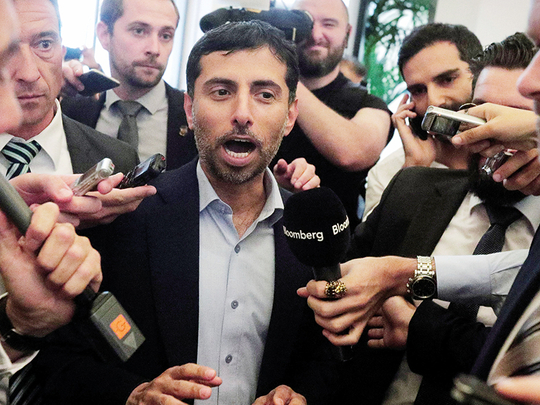
Abu Dhabi
The world’s top oil producers are set to increase production to stabilise oil prices despite opposition from Opec member countries like Iran, Venezuela and Iraq, analysts said.
The Organisation of the Petroleum Exporting Countries, along with and non-member countries like Russia, are meeting on Friday and Saturday to chalk out a strategy on output increases as major consumer countries voice concern over higher oil prices.
This will be the first time since the production cut agreement came into effect in January 2017 that the participating countries would be considering an output rise to control spike in oil prices that is denting the growth of the world’s economy.
Though there is no clarity on how much more oil would be pumped into the market, analysts predict about 300,000 to 600,000 barrels per day rise in production to offset output declines in Venezuela and Iran.
“Opec will reach consensus on raising production in order to reduce the over-compliance to the deal caused by the ongoing collapse in supplies from Venezuela. They will raise production by between 300,000 and 600,000 barrels per day while maintaining the production ceiling,” said Ole Hansen, head of commodity strategy at Saxo Bank.
He also said Iran, which was opposing any new changes to the production cut deal, will accept a modest increase in output.
The latest development comes as world’s top oil consuming countries like India and the US voice concern about the rise in oil prices. Indian oil minister Dharmendra Pradhan tweeted high that oil prices are pinching its economy and hence favours reasonable prices which do not undermine its development process. US President Donald Trump too said the current oil prices are too high.
Ehsan Khoman, director, head of research and strategist for the Middle East & North Africa (Mena) at MUFG Bank said prices are approaching the point where they are becoming a concern for consumers as well as for producers.
“We believe that a sustained period of Brent above $80 per barrel and $75 per barrel for WTI [West Texas Intermediate] will lead to demand destruction becoming more likely, through a combination of enhanced efficiency and a slowdown in the global economy,” he said adding that prices are expected to be impacted with the oil producers intending to increase output.
Khoman predicted oil will fall by $3 to $5 per barrel in the third quarter if there is a gradual increase of 350,000 to 700,000 barrels per day and by $5 to $7 per barrel if there is a stronger increase of 700,000 to 1.72 million barrels per day.
A decision to bring back all or close to all of the about 1.72 million barrels taken off the market, by countries that have spare capacity predominantly, Saudi Arabia, the UAE, Kuwait and Russia will have a downward impact on oil by$7 to $10 per barrel.
On the Vienna meeting, he said it would be a tense, discordant and highly geopolitical meeting due to opposition from Iran, Iraq and Venezuela.
“On one hand, Saudi Arabia and Russia have agreed to revive production, and on the other, Iran, Iraq and Venezuela want to maintain the current strategy of focusing on supporting prices over market share.”
Francisco Quintana, head of strategy at Foresight Advisors said there is no need for a consensus as Russia and Saudi Arabia have already agreed for an increase in output.
“Both Saudi Arabia and Russia have been signalling that he decision is almost made. To a large extent, the expected expansion is already priced in. We believe it is the main driver behind the $3 to $5 per barrel decline in price of the last couple of weeks.”
Saudi Arabia has about 2.2 million barrels per day of spare capacity whereas UAE, Kuwait and Russia have 546,000 bpd, 480,000 bpd and 408,000 respectively, Khoman said in a conference call with the media.
Brent crude is currently trading at about $74 per barrel where as WTI at $65 per barrel.












